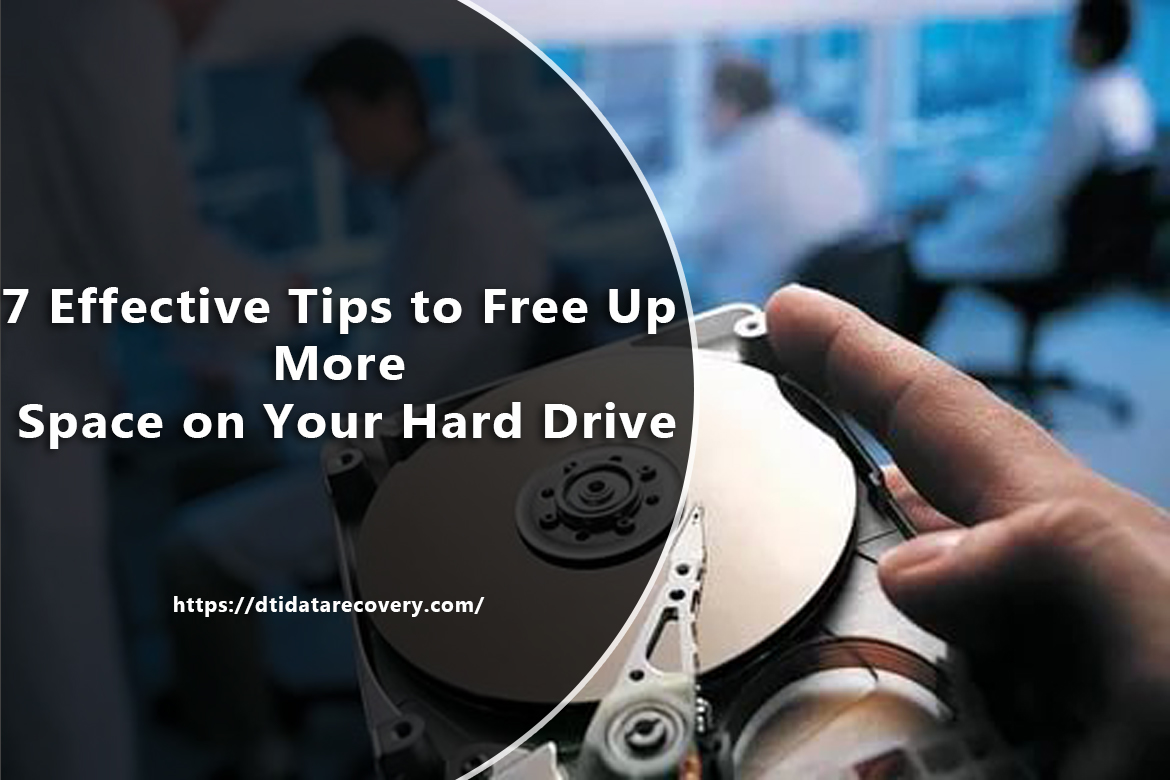7 Effective Tips to Free Up More Space on Your Hard Drive
The hard drive is where you store your computer data. Many PC users complain that their hard drives always seem to be full. So, we introduce 7 effective tips related to the hard drive on a Windows computer.Contact us for professional hard drive recovery in Orlando.
Why Opt For Hard Drive Recovery In Tampa
As we all know, our computer's data is stored on the computer's hard drive. Therefore, once the hard drive is full to the brim, we will not be able to write any more data to it. Also, as less and less space remains, the hard drive will gradually degrade. Also, a stuffed drive is considered vulnerable, especially a solid-state drive.
If the drive crashes, the data stored on it will be corrupted as well. At that time, you may have to spend a lot of money on disk or specific file recovery such as PST file corruption recovery. Therefore, it is strongly recommended that you never run out of disk storage and get in touch with professionals to help hard drive recovery in Tampa.
Today, we will teach you 7 tricks to free up more hard drive space on your computer.

Hard Drive Recovery: Free Up More Space On Your Hard Drive
Tip 1: Use The Disk Cleanup Tool
If your computer is running Windows operating system, you can use the built-in disk cleaning tool to quickly scan your files and remove temporary files and some insignificant files. To start, you can right-click on one of the hard drives in the computer window and select "Properties." Then in the next dialog, you can find and click the "Disk Cleanup" button.
Tip 2: Completely Clear Tempo And Duplicate Files And Files
The Disk Cleanup tool is handy and useful.But it can simply clean up the temporary files created by the system, not including the temporary files used by other software. You also cannot delete duplicate files. Therefore, in this situation, of course, you can turn to other external tools. There are many related utilities available on the market today. And many of them are totally free.
Tip 3: Disable Windows Hibernate Feature
In Windows, every time your computer hibernates, the contents of your RAM will automatically be saved to the hibernation file. The goal is to ensure that the next time you start your computer, you can restore it to the state it was in the last time. This file will take up a lot of your memory space. So, as long as you don't use hibernation, you can disable this feature, and Windows will delete the hibernation file accordingly.
Tip 4: Reduce The Space To Restore The System
Windows comes with a "System Restore" feature which will automatically use 10GB of space for the so-called "System Protection." It can help you easily restore to a previous version of the system when you encounter any system problem. Fortunately, Windows allows users to reduce the space to restore the system. If you think this feature is completely useless for you, you can also disable it directly.
Tip 5: Delete The Recovery Partition
Normally, a Windows computer comes with hard drive recovery partitions, the purpose of which is to allow you to return your PC to its factory defaults. These recovery partitions will take up a large amount of space as they contain a complete system image. Therefore, it is advisable to copy them to other data storage media and then delete them from the computer.
Tip 6: Temporarily Upload Unused Files To The Cloud
Also, you must have multiple files that are not in use at the moment. To these files, why not move them to other places? You can move them to external hard drives or other media. The best storage location should be the cloud, as it can allow users to access them anytime, anywhere, as long as they connect to the internet.
Tip 7: Uninstall Unnecessary Programs
The last tip, but not the least, is to uninstall programs that are not needed or used frequently. Assuming you have programs that you haven't run in months, don't hesitate and uninstall them right away. This is a fast and efficient way to free up hard disk space, as these programs must contain a large number of useless program files.Call us for any assistance as well as hard drive recovery in Orlando.